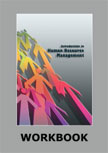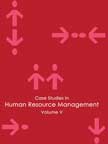SRC Holdings - The 'Open Book' Management Culture
|
|
ICMR HOME | Case Studies Collection
Case Details:
Case Code : HROB039
Case Length : 13 Pages
Period : 1974 - 2003
Pub Date : 2003
Teaching Note :Not Available
Organization : SRC Holdings
Industry : Manufacturing
Countries : USA
To download SRC Holdings - The 'Open Book' Management Culture case study
(Case Code: HROB039) click on the button below, and select the case from the list of available cases:

Price:
For delivery in electronic format: Rs. 400;
For delivery through courier (within India): Rs. 400 + Shipping & Handling Charges extra
» Human Resource and Organization Behavior Case Studies
» HRM Short Case Studies
» View Detailed Pricing Info
» How To Order This Case
» Business Case Studies
» Area Specific Case Studies
» Industry Wise Case Studies
» Company Wise Case Studies

Please note:
This case study was compiled from published sources, and is intended to be used as a basis for class discussion. It is not intended to illustrate either effective or ineffective handling of a management situation. Nor is it a primary information source.
Chat with us

Please leave your feedback

|
|




<< Previous
Excerpts
The Great Game of Business
|
In February 1983, SRC's debt equity ratio stood at 89:1 and the company
was required to pay a monthly interest of $90,000 on the $8.9 million loan.
Stack felt that there was only one way to deal with this constraining financial
obligation - to seek the help of employees, open the company's books to them,
educate them on all facets of running a business, and make them partners in the
business. Stack told his employees, "We need to generate enough cash and profits
to stay afloat. I do not know how to do it. Here are the financial statements.
This is how we keep track of what is going on. I need your help."
|

|
This laid the foundation for the practice of OBM at SRC and
led to the institutionalization of GGOB, which was built on SRC's earlier system
of treating the job as a game. The three main GGOB components were: know and
teach the rules; follow the action and keep score; and provide a stake in the
outcome (to the winners)...
The Unique Organizational Culture
SRC employees were taught to think and act like the owners of the company.
They were given the freedom to be innovative about their job, department,
and company. Stack did not believe in the policy of forcing employees to
mechanically perform their job. He gave his employees the complete
responsibility of their jobs.
According to Stack, this helped employees
realize the need to make every effort possible to overcome their weaknesses
and eventually led them to be innovative (in overcoming weaknesses). Stack
referred to this practice as giving 'psychic ownership' to employees.
SRC's culture was woven around providing opportunities for employees.
Commenting on this, Stack said, "We realized that we had a lot of people in
their 30s, and we had to figure out how to provide opportunities for them to
advance.
They became good businesspeople; we needed a place to put them. So we
created new businesses by helping people inside the organization who came to
us with ideas. The businesses we created were designed to solve a weakness
in the company or capitalize upon an opportunity. We invest the start-up
cash, take a percentage of the deal, and give the management team and the
employees the rest." ...
|
|
Benefits of GGOB
By implementing GGOB, SRC became a company of entrepreneurs where
employees considered themselves as profit makers and cash-flow
generators. One of the popular stories Stack often recounted (to
explain what difference GGOB made at SRC) was of the 'Nozzlettes.'
In the mid-1980s, when Stack was holding a weekly meeting and the
managers were giving their income statements about an engine that
had 750 parts, a lady from the corner of the room called out, "I do
not give a damn about the engine. I want to know about the injector
nozzles." |
ExhibitsExhibit I: A Brief Note on Open Book Management
Exhibit II: The Four Steps in Implementing GGOB
|
|









